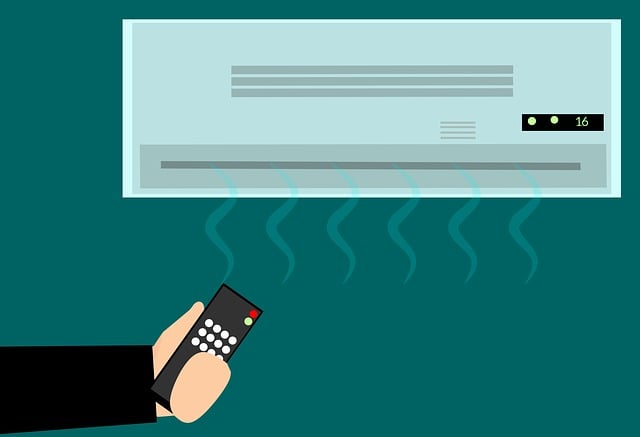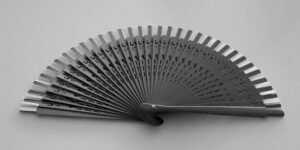Rising energy costs and environmental awareness drive stricter codes for water heaters, highlighting domestic hot water's impact on energy usage. Electric water heaters respond with enhanced efficiency standards and innovative technologies like tankless and storage heaters, reducing energy waste and environmental impact. High-efficiency electric systems save costs and contribute to sustainability, with growing popularity. Staying informed about code compliance ensures efficient, sustainable solutions, while future advancements driven by stricter codes and renewable energy promise improved heating efficiency and design for water heaters electric.
In recent years, stringent energy codes have pushed the limits of water heater efficiency. As global efforts to reduce carbon emissions intensify, understanding and adhering to these codes are essential for both manufacturers and consumers. This article explores high-efficiency electric water heaters as a solution, delving into advanced technologies, environmental benefits, code compliance strategies, and future prospects. Discover how these innovations not only meet but exceed ever-strict energy standards.
- Understanding Stricter Energy Codes for Water Heaters
- High-Efficiency Electric Water Heater Technologies
- Benefits of Adopting Efficient Water Heating Systems
- Navigating Code Compliance for Electric Water Heaters
- Future Trends in Electric Water Heater Efficiency
Understanding Stricter Energy Codes for Water Heaters

As energy costs rise and environmental concerns grow, governments worldwide are implementing stricter energy codes for water heaters. These regulations aim to reduce energy consumption and carbon emissions associated with heating domestic hot water, a significant portion of a home’s overall energy usage. For electric water heaters, this means meeting enhanced efficiency standards and adopting innovative technologies.
Residential electric heaters, including tank and tankless systems (electric hot water systems), must now adhere to more stringent energy-efficient guidelines. Electric storage heaters and point-of-use (instant) electric heaters are gaining popularity as they offer precise temperature control and lower energy waste compared to traditional tank water heaters. These advancements in electric heating technologies are crucial steps towards sustainable home water heating practices, ensuring a comfortable indoor environment while minimizing environmental impact.
High-Efficiency Electric Water Heater Technologies

Modern high-efficiency electric water heater technologies are revolutionizing home water heating with advanced features that significantly surpass traditional models. These cutting-edge systems employ innovative heating elements and insulation to deliver exceptional energy efficiency, reducing utility costs for homeowners. Unlike conventional tank water heaters, electric storage heaters offer a continuous hot water supply without the need for constant reheating, resulting in substantial energy savings.
Tankless electric systems, also known as point of use heaters or instant electric heaters, are another game-changer. They heat water on demand, eliminating the need for storing hot water in a tank. This not only conserves space but also ensures efficient heating, as water is heated immediately upon request, minimizing energy wastage. Electric hot water systems, with their advanced technology and focus on sustainability, are becoming increasingly popular among homeowners seeking eco-friendly and cost-effective solutions for their residential electric heaters.
Benefits of Adopting Efficient Water Heating Systems

Adopting high-efficiency electric water heating systems offers a multitude of benefits for both residential and commercial properties. One of the primary advantages is significant energy cost savings. These advanced systems, such as tankless electric heaters (point of use heaters) and electric storage heaters, are designed to minimize energy wastage by providing hot water on demand, eliminating the need for constant heating and storage. This results in reduced electricity bills, making them an attractive option for homeowners and business owners alike.
Moreover, efficient electric water heating systems contribute to environmental sustainability by lowering greenhouse gas emissions. As global efforts to combat climate change intensify, transitioning from conventional tank water heaters to energy-efficient alternatives plays a crucial role. Electric hot water systems, including instant electric heaters, are becoming increasingly popular as people recognize their potential to create a greener future. By embracing these innovations, we can ensure more sustainable home water heating practices while reaping the benefits of lower energy consumption and reduced environmental impact.
Navigating Code Compliance for Electric Water Heaters

Navigating Code Compliance for Electric Water Heaters
When it comes to installing or upgrading electric water heaters, understanding and adhering to stringent energy codes is paramount. These codes are designed to ensure safety, efficiency, and environmental sustainability in home water heating systems. For residential electric heaters, compliance often involves meeting specific performance standards set by organizations like the International Energy Conservation Code (IECC). These standards dictate factors such as insulation requirements, heat retention capabilities, and overall energy efficiency for both tank and tankless electric water heating systems.
Electric hot water systems, including storage heaters and point-of-use instant electric heaters, must also conform to local regulations. For instance, tankless electric systems are often favored for their space-saving design and on-demand heating capabilities, which can significantly reduce energy consumption compared to traditional tank water heaters. In light of these advancements, homeowners and contractors alike need to stay informed about the latest codes, ensuring that every installation or upgrade aligns with energy-efficient heating practices, ultimately contributing to more sustainable home water heating solutions.
Future Trends in Electric Water Heater Efficiency

As technology advances, the future of electric water heaters looks promising in terms of enhanced efficiency and sustainability. The trend towards more stringent energy codes and a growing focus on renewable energy sources is driving innovation in this sector. Manufacturers are continuously developing new technologies to improve heating elements, insulation, and overall design, leading to significant energy savings.
One notable development is the rise of tankless electric systems, also known as point-of-use heaters or instant electric heaters. These systems offer on-demand hot water, eliminating the need for large storage tanks, which reduces energy consumption and saves space. Electric storage heaters are another area of focus, with advancements in thermal mass technology improving their efficiency and making them a viable option for both residential and commercial applications, contributing to more effective home water heating solutions.
Stricter energy codes for water heaters, driven by the need for greater efficiency and reduced environmental impact, are pushing the adoption of high-efficiency electric water heating systems. Technologies like heat pump water heaters and advanced resistive heating elements offer significant benefits, including lower operating costs and decreased carbon footprints. As regulations continue to evolve, navigating code compliance becomes crucial for both homeowners and professionals alike. Looking ahead, future trends in electric water heater efficiency promise even greater sustainability, making efficient water heating systems an essential part of the energy-conscious landscape.






